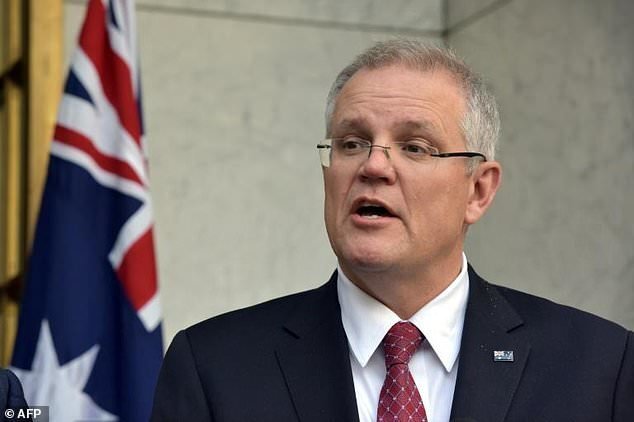Australia not to be drawn into military conflict with Iran: Scott Morrison

Australian Prime Minister Scott Morrison has said that his country will not be drawn into any military conflict with Iran.
Australia was engaged in the Strait of Hormuz and “that’s where our involvement is”, the Guardian quoted him as saying on Sunday.
“There was no discussion about anything else. There was an appreciation of our involvement in that particular operation, which I remind everyone is about freedom of navigation in the Straits of Hormuz,” he said.
He added, “That’s what that is about. The other matters that are being pursued by the United States are matters that they’re pursuing, and I made it very clear when we announced our involvement in [the Strait of Hormuz] that it was very much about that freedom of navigation issue and that’s what it is about and that’s appreciated.”
Morrison announced on August 21 that Canberra will take part in the U.S.-led coalition in the Persian Gulf.
“The government has decided that it is in Australia’s national interest to work with our international partners to contribute. Our contribution will be limited in scope and it will be time-bound,” Aljazeera quoted Morrison as saying at the time.
Australian Ambassador to Russia Graeme Meehan has said that Canberra’s participation in the U.S.-led coalition in the Persian Gulf does not mean that the country agrees with Washington’s stand on Iran.
“We are quite careful to say that our participation in the maritime action to protect shipping in the Strait of Hormuz doesn’t mean that we agree with all the actions that United States are taking in relation to the nuclear deal. Of course, the two things are connected, but there are also differences, and I think that is the same for some of the European countries that are considering participating in the maritime act. The European countries don’t generally agree with the United States’ action of pulling out of the nuclear deal,” Sputnik quoted him as saying on September 2.
The United States has called on its European and Asian allies to form a maritime force to supposedly monitor safe shipping in the Strait of Hormuz and Persian Gulf.
The friction is rooted in U.S. President Donald Trump’s decision in May 2018 to unilaterally withdraw from a landmark nuclear deal signed in 2015 between world powers and Iran.
Since then, the U.S. has reinstated sweeping sanctions against Tehran as part of a “maximum pressure” campaign and has also beefed up its military presence in the region.
The tensions escalated in May, when the U.S. accused Iran of sabotaging tankers in the shipping route, allegations vehemently denied by Iran.
Following Yemeni drone attacks on Saudi Arabia’s oil installations on September 14, Trump flagged the prospect of a military strike against Iran.
Washington claimed Iran was behind the attacks which has been rejected by Iran.
During a meeting with Morrison in the Oval Office on Friday, Trump said his preference was for restraint. However, he has ordered additional deployment of troops and enhanced air and missile defense systems to Saudi Arabia and the United Arab Emirates.
Iranian Foreign Minister Mohammad Javad Zarif said on Friday that “even the Saudis themselves don’t believe the fiction of Iranian involvement” in the attacks on the Aramco oil facilities.
He said on Thursday that a military strike against Iran by the U.S. or Saudi Arabia would result in “an all-out war”.
“I make a very serious statement about defending our country. I am making a very serious statement that we don’t want to engage in a military confrontation. But we won’t blink to defend our territory,” he told CNN.
Zarif said that Iran hoped to avoid conflict, adding that the country was willing to talk to Saudi Arabia and the UAE. But the possibility of a return to negotiations with the U.S., however, would not happen unless Washington provided full sanctions relief as promised under the 2015 nuclear deal, Tehran’s top diplomat said.
NA/PA

Leave a Comment